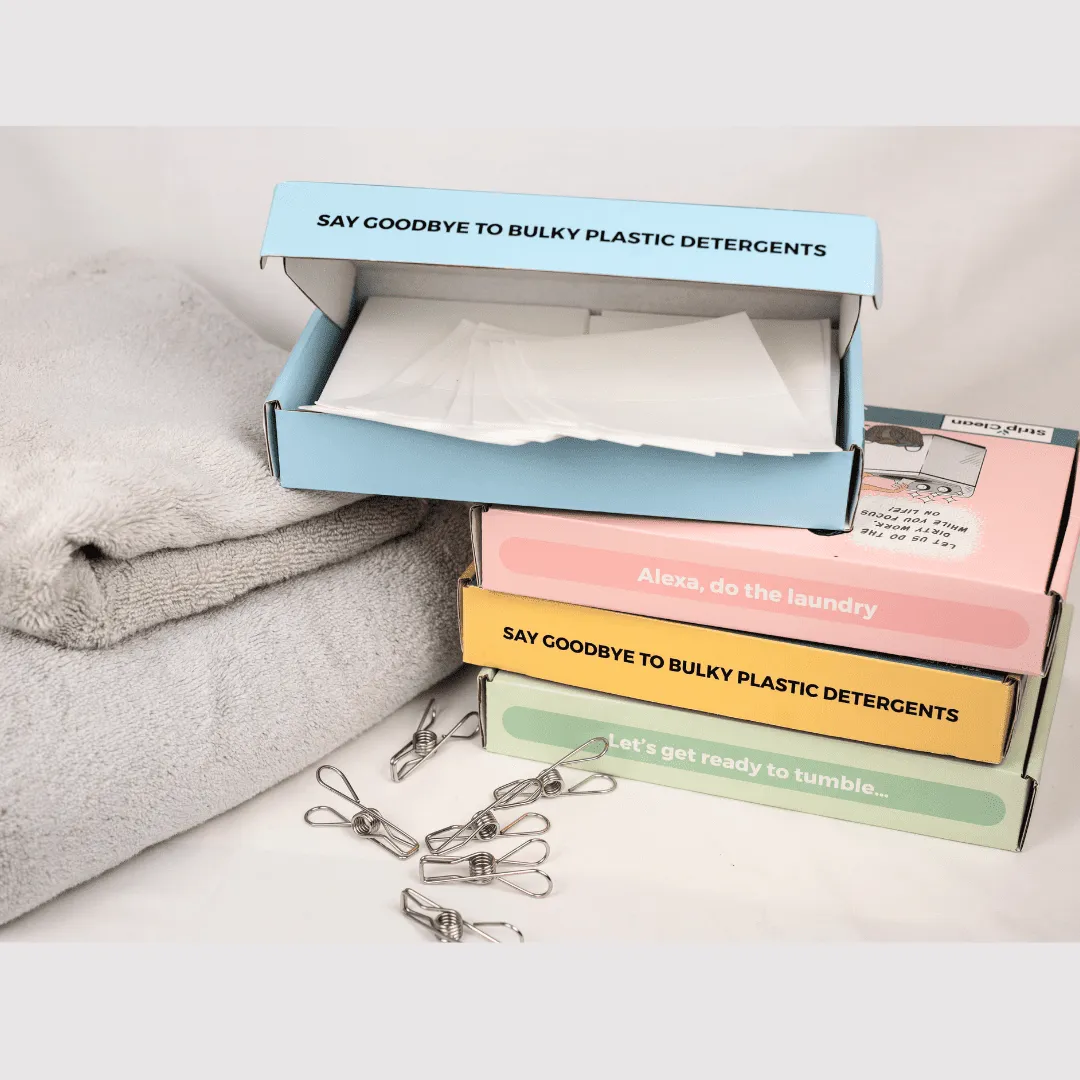
In recent years, sustainable living has become a priority for individuals and households across Australia. From reducing single-use plastics to adopting energy-efficient appliances, Australians are finding ways to minimize their environmental impact. One often-overlooked area is laundry care. While traditional laundry detergents have been the go-to solution for decades, laundry sheets have emerged as a viable, eco-friendly alternative. This blog explores the carbon footprint of laundry detergents versus laundry sheets in Australia, helping you make an informed, sustainable choice.
Understanding the Carbon Footprint of Laundry Products
The carbon footprint of any product refers to the total amount of greenhouse gas emissions generated throughout its lifecycle. This includes production, packaging, transportation, use, and disposal. Both traditional laundry detergents and laundry sheets contribute to environmental impact in unique ways, but the latter is gaining popularity for its reduced carbon emissions.
Production and Ingredients
Traditional Laundry Detergents
The production of traditional laundry detergents involves sourcing and processing various chemicals, such as surfactants, enzymes, and fragrances. Many of these chemicals are petroleum-based, contributing significantly to carbon emissions during extraction and manufacturing. Additionally, the production process requires a substantial amount of water and energy.
Laundry Sheets
Laundry sheets are formulated with concentrated cleaning agents that are free from water content, making their production process more energy-efficient. Many brands offering laundry sheets in Australia use plant-based, biodegradable ingredients, reducing reliance on fossil fuels. This shift toward sustainable ingredients lowers the overall carbon footprint compared to conventional detergents.
Packaging
Traditional Laundry Detergents
One of the most significant contributors to the carbon footprint of traditional laundry detergents is their packaging. Most detergents are sold in plastic bottles or large containers, which often end up in landfills or contribute to ocean pollution. The production and disposal of plastic generate high carbon emissions.
Laundry Sheets
Laundry sheets are typically packaged in minimal, eco-friendly materials, such as recyclable cardboard or compostable paper. These lightweight and compact packaging solutions not only reduce waste but also require less energy for production and transportation. For eco-conscious households in Australia, laundry sheets provide a greener alternative to plastic-heavy detergent bottles.
Transportation
Traditional Laundry Detergents
Transporting traditional detergents across Australia contributes significantly to their carbon footprint. Detergent bottles are bulky and heavy due to their water content, requiring more fuel for shipping. The added weight increases greenhouse gas emissions during transportation.
Laundry Sheets
Laundry sheets are lightweight and compact, making them easier to transport. Their reduced size means more units can be shipped in a single trip, decreasing the overall fuel consumption and associated carbon emissions. This makes laundry sheets Australia a practical choice for households looking to lower their environmental impact.
Usage and Efficiency
Traditional Laundry Detergents
Traditional detergents often require precise measurements to avoid overuse, leading to product wastage and increased environmental harm. Moreover, some detergents contain non-biodegradable chemicals that may harm aquatic ecosystems when washed down the drain.
Laundry Sheets
Laundry sheets come pre-measured, ensuring no wastage and consistent cleaning results. Many laundry sheets in Australia are designed to dissolve completely in water, leaving no residue behind. This efficiency contributes to a smaller carbon footprint during the product’s use phase.
Disposal and Biodegradability
Traditional Laundry Detergents
Plastic bottles used for detergents contribute to long-term waste issues, as they can take hundreds of years to decompose. While some bottles are recyclable, the recycling process itself consumes energy and generates emissions. Additionally, chemical residues from traditional detergents may pollute waterways.
Laundry Sheets
Laundry sheets, particularly those offered by sustainable brands in Australia, are often biodegradable. They break down naturally, leaving no harmful residue. Their packaging, usually made from recyclable or compostable materials, further reduces waste and energy consumption during disposal.
Why Australians Are Switching to Laundry Sheets
The shift toward laundry sheets Australia is part of a broader movement to embrace eco-friendly living. Australians are increasingly aware of the environmental consequences of their choices and are looking for practical ways to reduce their carbon footprint. Laundry sheets offer several advantages:
- Convenience: Pre-measured sheets eliminate the guesswork involved in doing laundry.
- Eco-Friendly Packaging: With minimal or no plastic, laundry sheets align with Australia’s efforts to reduce plastic waste.
- Compact Design: Their lightweight and compact form save storage space and reduce transportation emissions.
- Biodegradability: Most laundry sheets are designed to dissolve completely and decompose naturally, making them an environmentally responsible choice.
Comparing Costs: Are Laundry Sheets Worth It?
While laundry sheets may have a slightly higher upfront cost than traditional detergents, their long-term benefits often outweigh the price difference. By reducing waste, water usage, and energy consumption, laundry sheets provide excellent value for eco-conscious Australians.
Moreover, many Australian brands now offer competitively priced laundry sheets, making them accessible to a broader audience. Purchasing in bulk or subscribing to delivery services can further lower costs while ensuring a steady supply of sustainable laundry products.
Tips for Choosing Sustainable Laundry Sheets in Australia
To maximize the environmental benefits of laundry sheets, consider the following factors when making a purchase:
- Ingredient Transparency: Opt for products with plant-based, biodegradable ingredients and no harsh chemicals.
- Packaging: Look for brands that use recyclable or compostable materials.
- Certifications: Choose laundry sheets certified by trusted eco-labels, such as Australian Certified Organic or EcoCert.
- Local Brands: Support Australian-made laundry sheets to minimize transportation emissions and promote local businesses.
Conclusion
The carbon footprint of laundry detergents versus laundry sheets in Australia highlights the urgent need for more sustainable laundry practices. While traditional detergents contribute significantly to greenhouse gas emissions through production, packaging, and transportation, laundry sheets offer a greener alternative. With their lightweight design, eco-friendly packaging, and biodegradable ingredients, laundry sheets are helping Australian households reduce their environmental impact.
Making the switch to laundry sheets Australia is a simple yet impactful way to support sustainability and contribute to a cleaner, greener future. By choosing laundry sheets, Australians can enjoy effective cleaning while minimizing their carbon footprint, proving that small changes can lead to significant environmental benefits.